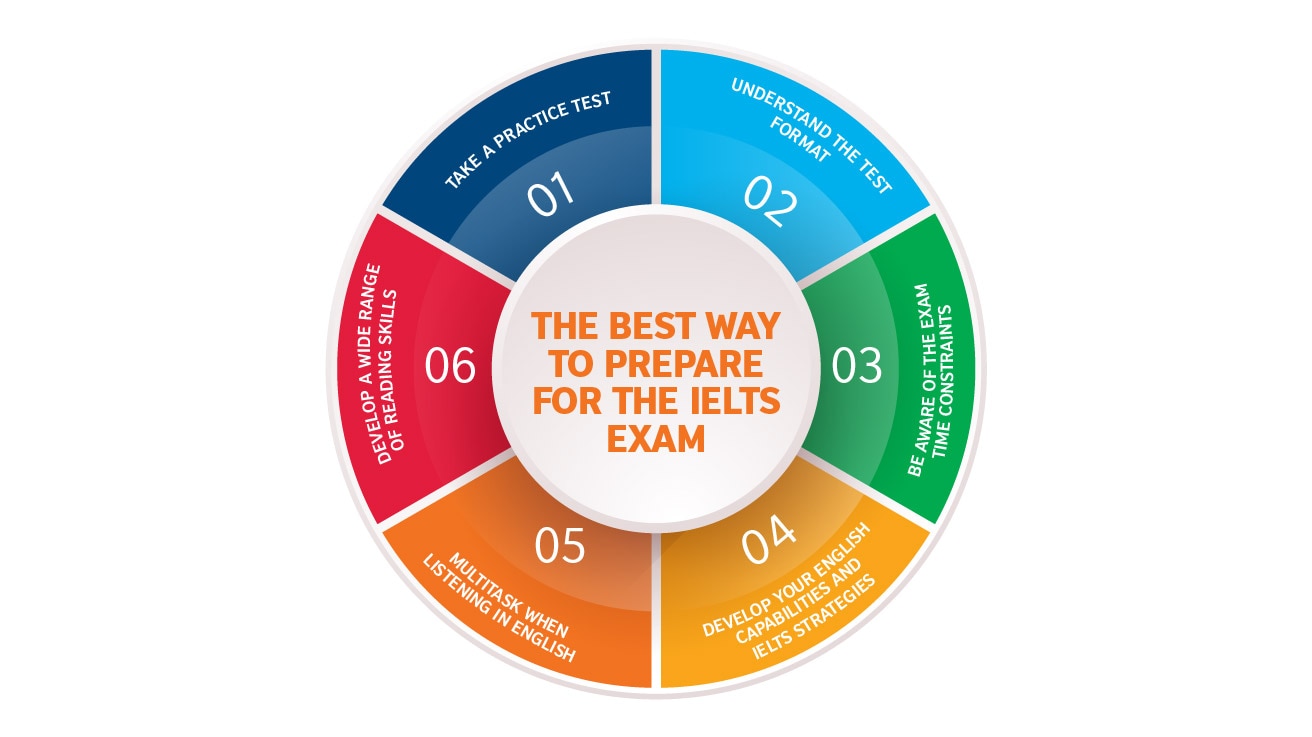
Introduction of IELTS Listening Test
The International English Language Testing System (IELTS) is a globally recognized English proficiency test, designed to assess a candidate’s ability to use and understand the English language in an academic or social context. Among the four sections of the IELTS test, the Listening Test holds significant importance, and excelling in this section is crucial to achieving a good overall band score. In this article, we will explore the best tips to help you begin your IELTS Listening Test preparation.
What is the IELTS Listening Test?
The IELTS Listening Test is a 30-minute module that evaluates a candidate’s listening skills through a series of audio recordings. These recordings feature various English accents and are played only once, challenging test-takers to concentrate and comprehend the content accurately.
How is the Listening Test Structured?
The test consists of four sections, each with a distinct set of questions. The difficulty level gradually increases as you progress through the sections. The topics covered in the recordings represent everyday situations, academic discussions, and social interactions.
Importance of IELTS Listening Test Preparation
Why is the Listening Test Important?
Scoring well in the Listening Test contributes significantly to your overall IELTS band score. Universities, employers, and immigration authorities often use IELTS scores as a measure of an individual’s English language proficiency. A high Listening Test score can enhance your prospects of study or work opportunities in English-speaking countries.
How Does It Affect Your Overall IELTS Score?
The Listening Test is worth 25% of your total IELTS band score, making it a critical component of the assessment. A higher score in this section can compensate for a weaker performance in other modules.
Tips to Begin Your IELTS Listening Preparation
Familiarize Yourself with the Format
Before diving into intense preparation, understand the test format thoroughly. Get acquainted with the types of questions, audio styles, and the overall structure of the test.
Enhance Your Listening Skills
Engage in regular listening exercises to improve your ability to understand various accents and audio styles. Practice listening to podcasts, news reports, and academic lectures to build your auditory comprehension.
Use Authentic Listening Materials
Seek out authentic IELTS listening materials from reliable sources. Official IELTS practice materials or reputable test preparation books will provide you with accurate representations of the test format.
Practice with Sample Tests
Take advantage of practice tests available online or in test preparation books. These simulated tests will help you become familiar with the time constraints and the types of questions asked.
During the IELTS Listening Test
Active Listening Techniques
During the test, employ active listening techniques such as predicting answers, identifying keywords, and recognizing the context to follow the audio effectively.
Guessing Strategies
If you miss an answer, don’t get stuck; utilize educated guessing techniques to maximize your chances of scoring points.
Taking Notes Effectively
Jot down key points while listening. Effective note-taking will aid in recalling details when answering questions.
Post-Test Analysis and Improvement
Review Your Answers
After completing the test, review your answers. Check for errors and ensure you’ve provided responses as per the instructions.
Identify Weaknesses
Recognize your weaknesses and areas where you struggled during the test. This will help you focus on improving those aspects.
Seek Feedback
If possible, seek feedback from an experienced English language instructor. Constructive feedback will offer insights into your performance and areas for improvement.
Overcoming Challenges in the Listening Test
Accents and Pronunciations
IELTS listening tests may include various accents and pronunciations. Practice listening to different accents to become comfortable with them.
Background Noise
In the test environment, distractions and background noise can be challenging. Practice in a quiet space, simulating the test conditions as closely as possible.
Anxiety and Stress Management
Test anxiety can negatively impact your performance. Practice relaxation techniques and build confidence in your abilities.
Conclusion
Mastering the IELTS Listening Test is a vital step toward achieving your academic and career goals in an English-speaking environment. By following these tips and strategies, you can begin your preparation on the right foot and work towards an outstanding performance.
For more information , Visit or get in touch with our trusted study abroad consultancy.






